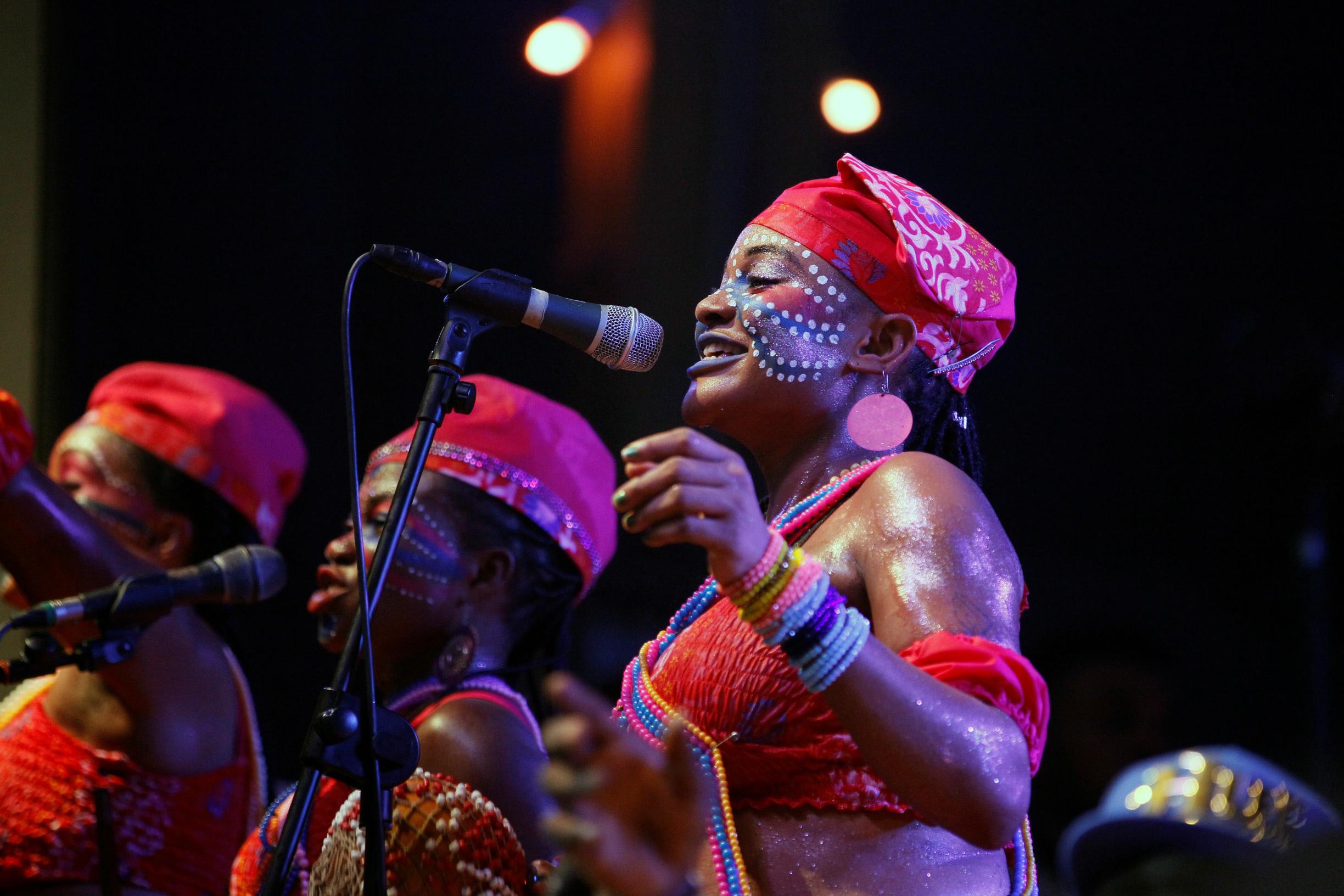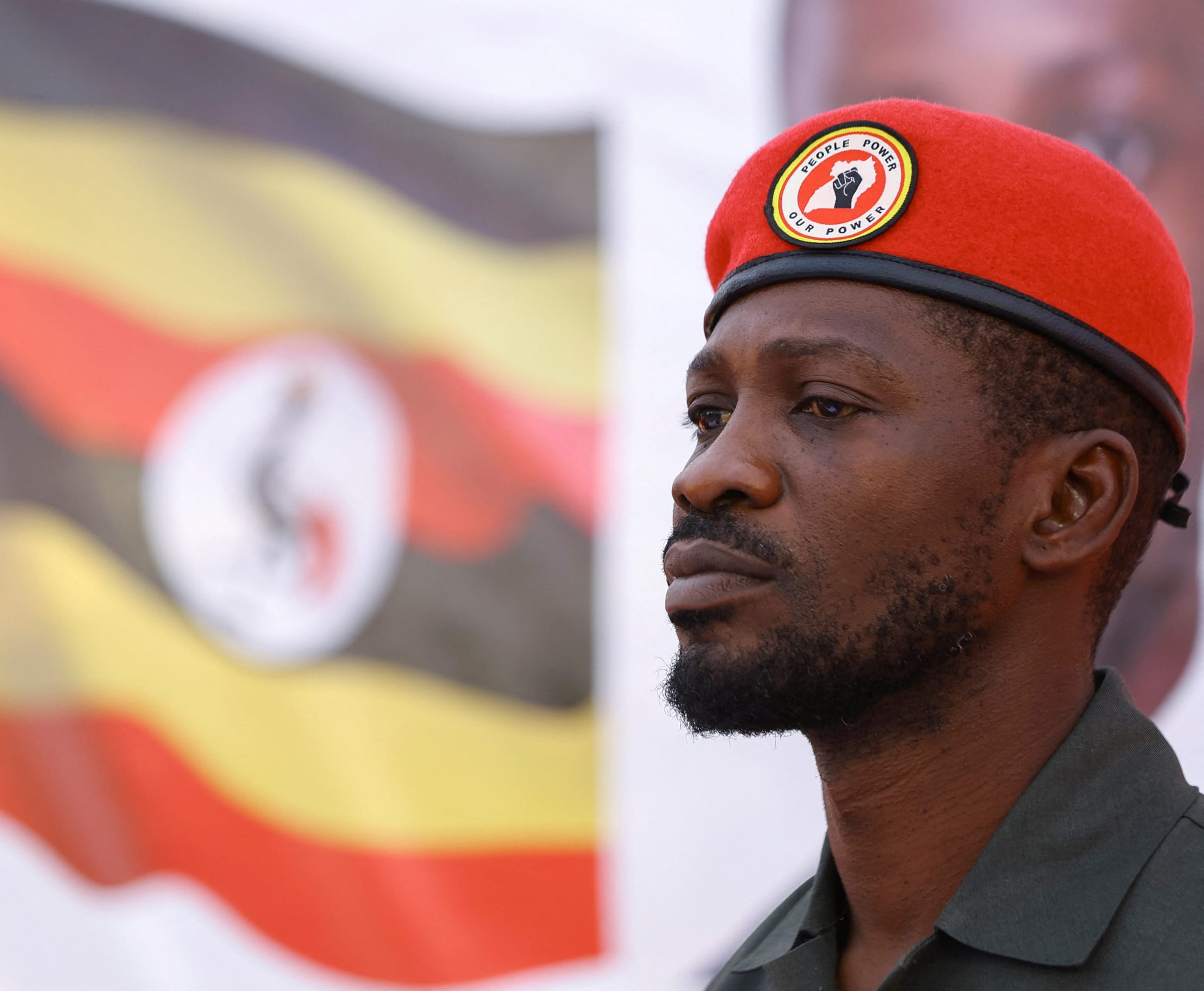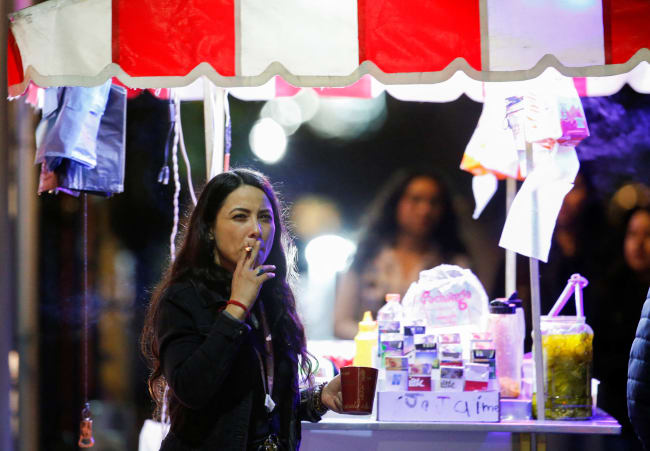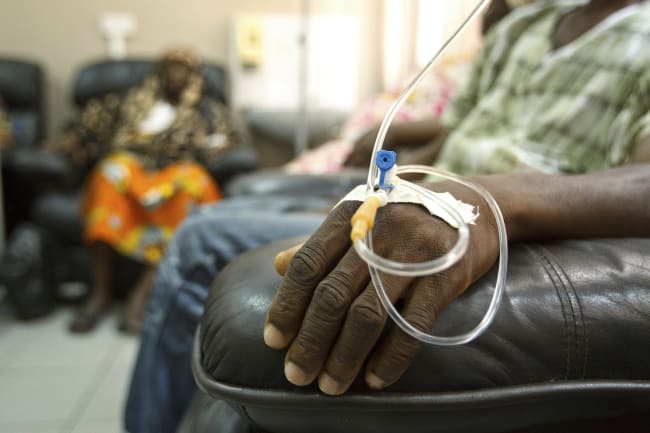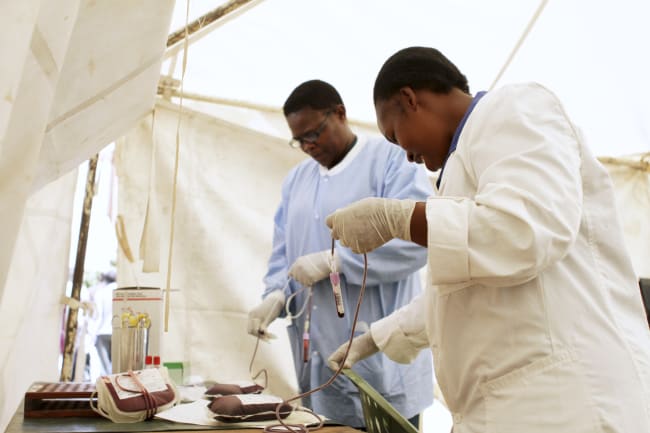Growing up in a slum outside Kampala, Uganda, Robert Kyagulanyi Ssentamu didn't imagine he would one day become the voice of a global movement. What he did know was that for conditions to improve in his struggling city, he would need to call attention to the poverty, strife, and oppression its residents felt.
"Somebody had to speak for us," he said, matter-of-factly. "People thought I had the loudest voice."
Kyagulanyi's desire for change catalyzed his political advocacy and the breakout of his music career under the stage name Bobi Wine. Through his work, Wine has helped fuel the world's newfound embrace of African music and shed light on political issues, including health crises. He's the acme of how music has become a powerful tool to mobilize change, especially for public health responses—both in Africa and overseas. Its accessible, engaging format, history of trustworthy messengers, and appeal to wide demographics have positioned African music as an unexpected beacon of truth and optimism in navigating the continent's challenges.
When Hip Hop Saves Lives
Music has altered individual-level behaviors and sparked movements to address major health challenges in Africa. When the COVID-19 pandemic broke out, for example, a morass of disinformation bubbled up around the disease. In Kenya, rumors spread that black tea could be a cure; in Nigeria, men were told that shaving their beards would help prevent them from catching the virus. Around the world, countries—including the United States—faced their own infodemics, with suggestions of false remedies ranging from injecting bleach to taking ivermectin, the antiparasitic horse medication.
Music has altered individual-level behaviors and sparked movements to address major health challenges in Africa
Wine saw an opportunity to use his platform to dispel that misinformation by releasing the song "Corona Virus Alert," urging audiences to take the disease seriously and delivering verses on how to help curb its spread. An upbeat track complete with a quintessential African drumming groove, plucky bass guitar, and steady, arpeggio-like marimba beats cultivates a motivating sound that drives his serious message to the world.
The song, promoted by the United Nations and public radio alike, quickly became a worldwide sensation. Putting global health over artistic ownership, Wine declared that anyone could cover his song to help the message reach wider audiences, allowing the track to be streamed roughly 50,000 times across his platform and the United Nations' alone. Listeners from the Netherlands to Niger thanked him for teaching them about the virus in an engaging, accessible format.
The reach of musicians like Wine inspired UNESCO's #DontGoViral Africa-centered campaign, under which hundreds of artists from at least 40 African countries made COVID edutainment content. The United Nations has called it the campaign where "hip-hop saves lives."
In Niger, the band Ezza gave a cautionary warning in a regional dialect: "Corona exists, it is a reality and not a lie . . . whatever you touch, wash your hands with soap." The Comoros group Compagnie Tcheza performed a spirited breakdance demo of how to social distance through an exaggerated routine of kinetic spins and flips. Zanzibar's Siti Amina sang about how the "worldwide fever kills" while demonstrating life in lockdown.
Between 2017 and 2022, the number of times Afrobeats songs streamed on Spotify rose by a staggering 550%. These modern African styles of music have taken hold of the world to become one of the continent's biggest cultural exports—and, with it, the messages they convey.
The soundscape of the pandemic, inspired by Wine, thus became a movement: a drumbeat of health warnings, a disinformation combatant, and a social touchstone for a world confronted with navigating an unknown challenge.
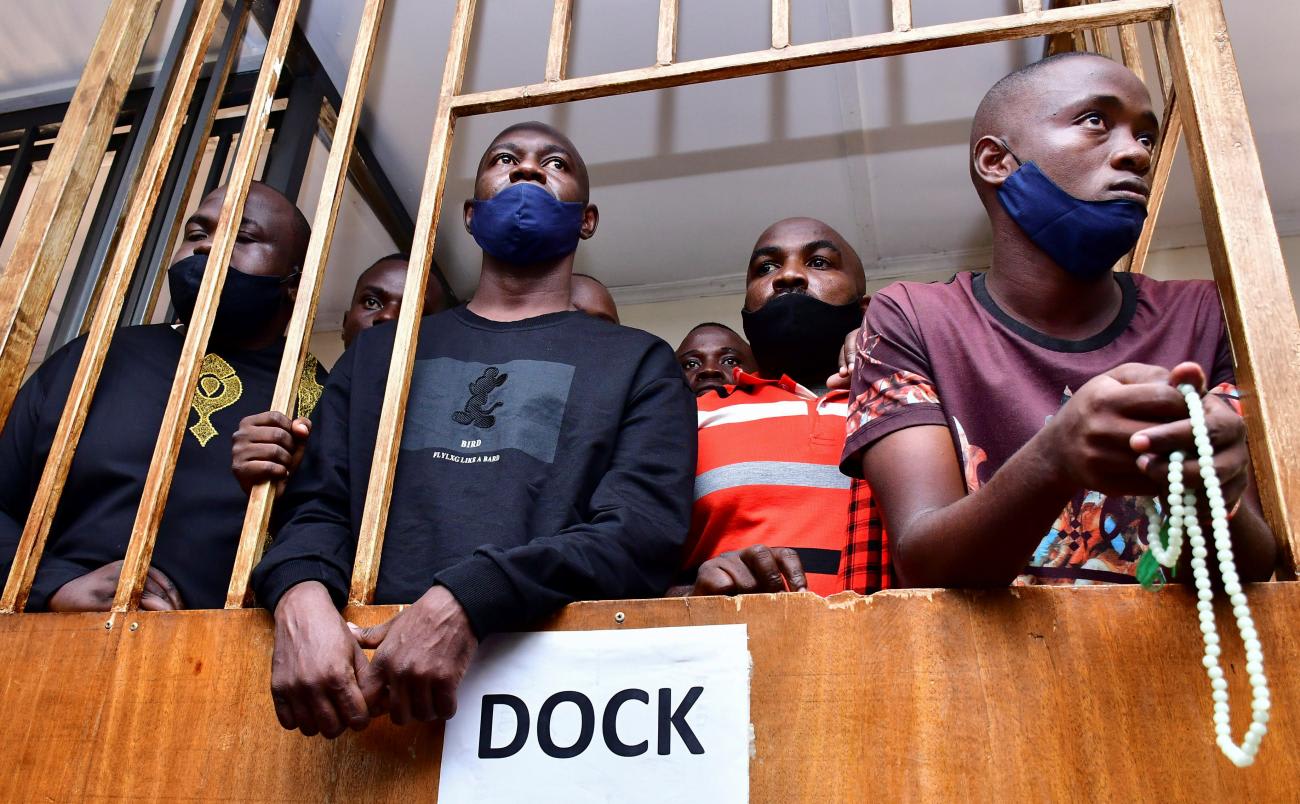
African Music's Effect on Health
Like Wine, many African artists are inspired to comment on their communities' challenges: "When you're in the creative space, it's almost impossible to have tunnel vision," says Eka Ikpe, director of the African Leadership Centre at King's College London, who has studied the influence of music on African politics.
Epidemics including HIV and Ebola have seen musicians step in to galvanize their listeners. Some of Africa's most well-known singers banded together with academics to educate on Ebola and "rebuild people's trust in the health services in their countries," as rife disinformation deteriorated that relationship, remarks music and social change scholar Carlos Chirinos.
Other health issues have become a significant part of Africa's sonic scene. Nigerian singer Tiwa Savage, for example, has called out sexual abuse and pleaded for government intervention in her songs "Loaded" and "Koroba." In Sudan, rap has become the outlet for the diaspora to connect and call out the humanitarian issues caused by the country's civil war, helping bring attention to a globally ignored crisis.
Nigeria, the birthplace of Afrobeats, has seen two other massive protest movements in the last few years fueled by music. Earlier this year, the End Bad Governance campaign called out the cost-of-living obscuring food security. In 2020, the End SARS campaign—the government's violent Special Anti-Robbery Squad—protested police brutality and public safety.
Although many Afrobeats stars, including genre juggernauts Burna Boy and Fikky, released music that commented on the crises and called for public and government action, none were as emblematic as Afrobeats titan Davido, whose song "FEM" became the End SARS soundtrack for a revolution. "Fem" loosely translates to "shut up" in the local dialect pidgin, encapsulating the anger that Nigerian youth felt about their lack of safety and security as they took it to the streets.
"FEM" was an instance where fans in turn inspired the artist. Davido went to the capital to meet with government officials and explain the urgency of the movement's demands. "You're messing up for my people," the rapper famously told the inspector general of police.
What drives Davido's work now as a musician, he says, is "leaving a legacy" like the Afrobeats founder before him, Fela Kuti, who is known decades later for his songs challenging the political system.
The genre's focus on authenticity and local audiences has resonated with both African and global markets, Ikpe says. It "offers an opportunity to tune in to visions of hope from younger generations" on their countries' futures. The mental health impacts of this were inordinate as well: Nigerians credit Afrobeats as one of the few things able to lift them out of depression during the compounding COVID pandemic and SARS trauma.
Notorious Music Lovers
African music has become both a platform for rallying cries and guidance on pressing issues, such as those in the health sphere. The body of research on how music has power in African communities to influence politics, work, and everyday behavior is growing. In large part, the social history of postcolonialism renaissance and the way that music has infiltrated almost every "parcel of their everyday life," quite literally from birth until death, has culminated in Africans' turning to the medium more and more, Nigerian researcher Celestine Chukwuemeka Mbaegbu writes. As "notorious music lovers," music as a mode of messaging seems to have a dominion unmatched in African countries.
More sinister drivers also push the public to look to musicians for guidance. Many Africans live where democracy is deteriorating or governments are outright authoritarian. When people don't trust their government and misinformation belies the truth, they turn to other sources for leadership, and music and pop culture figureheads can sometimes bear more weight, experts say.
African music has become both a platform for rallying cries and guidance on pressing issues, such as those in the health sphere
Although some think there's room for collaboration between governments and artists, in these situations, musicians' messaging is often more effective when they act on their own. "There're these questions about authenticity," an Afrobeats investor tells Think Global Health. "If you put a musician next to a government official, would that be useful? If you put them next to an embassy, would that be visible?" In cases of misinformation and lack of trust in institutions, a message is not as potent when the government adds its stamp of approval. Sometimes, artists who speak out on issues and garner too much attention in places where authoritarian governments reign are at risk of certain dangers.
The Quantification Gap
Artists becoming involved in politics can be controversial, but the African public seems to respond well. The next step, to better leverage this, is understanding more about why and how.
Although artists like Wine and Davido are prime examples of how influential music with health messaging can spark movements, researchers have had trouble quantifying the connection.
Music's potential to shape behavior hasn't been extensively studied—but it should be, the policy experts say. "I think there's research to be done," a former U.S. government official tells Think Global Health. "This would be a huge win." Measuring the music phenomenon can help inform governments about new communications tools and encourage artists to sing with a socially conscious angle.
The appetite for harnessing the power of music there in the policy world, the former official says, "does cause excitement given how much musicians or celebrities or athletes are respected in their respective societies."
This potential, coupled with the surge in the world embracing Afrobeats, carries tremendous significance. It gives artists a chance to steer the music industry and harness it to unravel health and governance challenges. African musicians, from Fela to Bobi Wine to Davido, are changing minds around the world, not just at home.
